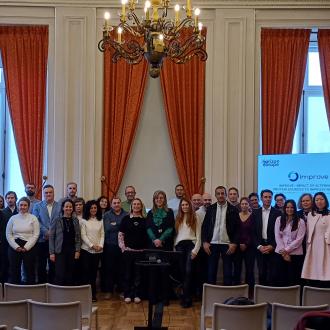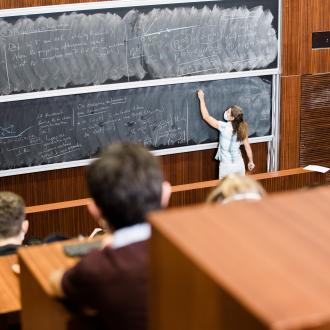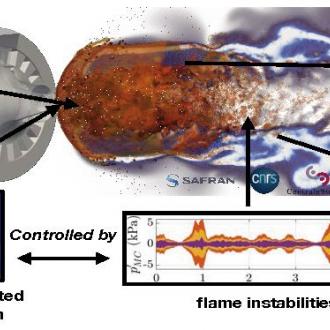
The December issue of Nature Medicine focuses on the AI training of future physicians. In an article entitled "AI added to the curriculum for doctors-to-be", journalist Monique Brouillette highlights the training program that has been in place for several years between the Gustave Roussy Institute and CentraleSupélec. This training has two aspects: on the one hand, the Institut de Formation Supérieure Biomédicale (IFSBM), directed by Professor Nathalie Lassau, is the result of a partnership that also includes INSERM and the Université Paris-Sud; and on the other hand, the training component of the Centre National de Médecine de Précision (CNMP) coordinated by Professor Fabrice André. The latter is a project-oriented training course for engineering and medical students.
A core group of about ten researchers from the IGR and 3 CentraleSupélec laboratories (CVN - Hugues Talbot, MICS - Paul-Henry Cournède and L2S - Charles Soussen) contributes to this system. These collaborations are based on a mutual exchange of knowledge for a better understanding of AI tools and methods in health and of the processes and criteria for decision-making by physicians.
The training systems put in place provide physicians in Master's or science thesis programs with the additional mathematical and statistical knowledge required to properly use decision support tools. AI, thus better understood, can be used with confidence.
The training aspect of this collaboration also involves other audiences. The engineering students of the Biotech Engineering option thus have the opportunity to follow courses at the IFSBM. The school's laboratories and the Institut Gustave Roussy open their doors to students from other schools in caesura and to post-doctoral students on the themes of IA/Data health sciences within the framework of the CNMP. CentraleSupélec engineering students in their 1st and 2nd year had the opportunity to work on tools and methods to assist in rapid and reliable diagnosis.
The relationships initiated during these training courses enable the emergence of long-term research collaborations.
The Nature Medicine article was also noticed by Eric Topol, an American cardiologist, geneticist and specialist in digital medicine, during his monitoring of emerging trends in medicine.
* The Centre National de Médecine de Précision is the result of a partnership in second-generation oncology with Inserm, CentraleSupélec, Université Paris-Sud, Unicancer and the ARC Foundation. Created in 2018 and coordinated by Prof. Fabrice André. Its mission is to model cancer on an individual scale in order to identify the most appropriate treatment for each patient. Prism conducts large-scale clinical studies and develops molecular analysis technologies and data analysis methods.




